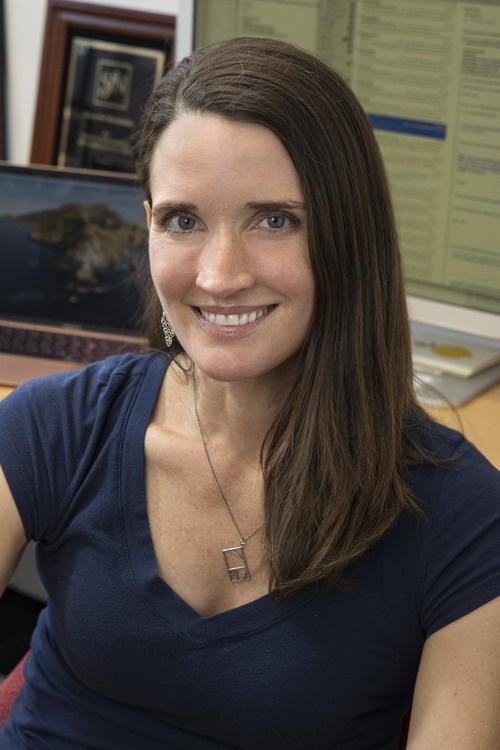
Colloquium on the Brain and Cognition with Anne Churchland
Description
Talk Title: Movements and engagement during decision-making
Abstract: When experts are immersed in a task, a natural assumption is that their brains prioritize task-related activity. Accordingly, most efforts to understand neural activity during well-learned tasks focus on cognitive computations and task-related movements. Surprisingly, we observed that during decision-making, the cortex-wide activity of multiple cell types is dominated by movements, especially “uninstructed movements”, that are spontaneously expressed. These observations argue that animals execute expert decisions while performing richly varied, uninstructed movements that profoundly shape neural activity. To understand the relationship between these movements and decision-making, we examined the movements more closely. We tested whether the magnitude or the timing of the movements was correlated with decision-making performance. To do this, we partitioned movements into two groups: task-aligned movements that were well predicted by task events (such as the onset of the sensory stimulus or choice) and task independent movement (TIM) that occurred independently of task events. TIM had a reliable, inverse correlation with performance in head-restrained mice and freely moving rats. This hinted that the timing of spontaneous movements could indicate periods of disengagement. To confirm this, we compared TIM to the latent behavioral states recovered by a hidden Markov model with Bernoulli generalized linear model observations (GLM-HMM) and found these, again, to be inversely correlated. Finally, we examined the impact of these behavioral states on neural activity. Surprisingly, we found that the same movement impacts neural activity more strongly when animals are disengaged. An intriguing possibility is that these larger movement signals disrupt cognitive computations, leading to poor decision-making performance. Taken together, these observations argue that movements and cognition are closely intertwined, even during expert decision-making.
Bio: Anne Churchland is a professor of neurobiology in the David Geffen School of Medicine at the University of California, Los Angeles (UCLA). She received her B.A. in mathematics and psychology from Wellesley College and her Ph.D. in neuroscience from the University of California, San Francisco in 2003. She completed her postdoctoral training at the University of Washington from 2004 to 2010 and was a principal investigator in neuroscience at Cold Spring Harbor Laboratory from 2010 until she joined the UCLA faculty in May 2020. Churchland’s laboratory investigates the neural circuits that support decision-making. When making decisions, humans and animals can flexibly integrate multiple sources of information before committing to action. The ability to flexibly use incoming information distinguishes decisions from reflexes, offering a tractable entry point into more complex cognitive processes defined by flexibility, such as abstract thinking, reasoning and problem-solving. To understand the neural mechanisms that support decision-making, the Churchland lab measures and manipulates neurons in cortical and subcortical areas while animals make decisions about sensory signals. To connect the neural responses with behavior, her lab uses mathematical analyses aimed at understanding what information is represented at the level of neural populations, both at a given moment and over time. Understanding neural population activity will bolster the lab’s long-term goal of understanding cognitive processes that integrate inputs from our multiple senses, stored memories and innate impulses. Churchland has received awards from the McKnight Foundation, the Pew Charitable Trusts, the Society for Neuroscience and Cold Spring Harbor Laboratory, and she is a recipient of the Klingenstein-Simons Fellowship Award. To broaden the impact of her lab’s efforts, Churchland maintains a YouTube channel and a TikTok stream featuring scientific content aimed at diverse audiences.
Webinar Link: https://us02web.zoom.us/j/89002014229
Followed by a reception with food and drink in 3rd floor atrium

